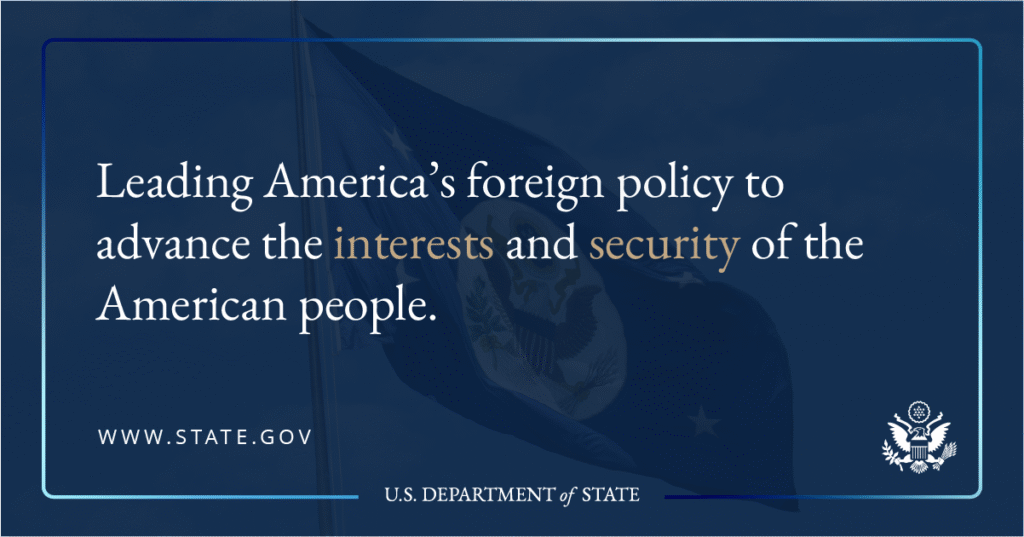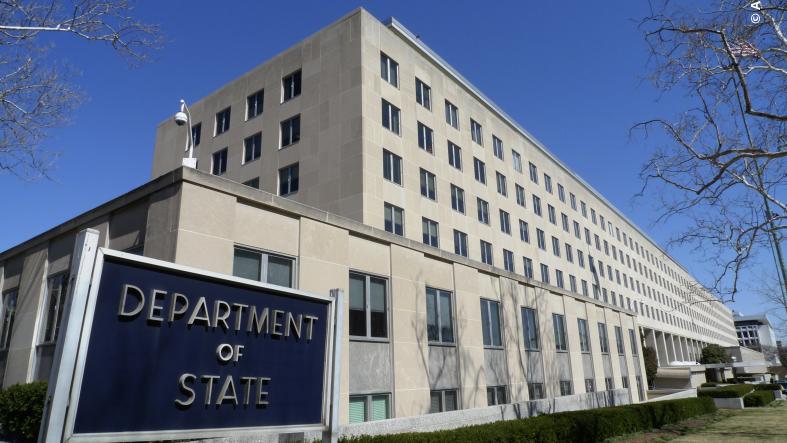State.gov Business:Guide Opportunities Protocol
Introduction to State.gov Business Resources
The state.gov business portal serves as the official digital gateway for organizations seeking to understand and engage with the U.S. Department of State’s extensive procurement needs and partnership opportunities. As the lead foreign affairs agency of the United States, the Department of State operates a massive global network of embassies, consulates, and diplomatic missions, all requiring goods, services, and solutions from private sector partners. The state.gov business resources provide a comprehensive framework for businesses of all sizes to explore how they can contribute to advancing U.S. foreign policy objectives while growing their enterprise through government contracting. Through strategic initiatives and detailed guidance, the Department has created structured pathways for collaboration with commercial entities that possess the expertise and capabilities to support diplomatic operations worldwide

Understanding the intricacies of state.gov business procedures is essential for any company looking to successfully navigate the federal contracting landscape. The Department of State acquires everything from construction services for embassy buildings to advanced cybersecurity solutions, professional consulting services, facility maintenance, security services, and technology infrastructure. Each year, the Department awards approximately $12 billion in contracts, with over $5 billion going specifically to small businesses in recent fiscal years. The most frequently awarded categories include Facilities Support Services (NAICS 561210), Computer Systems Design Services (NAICS 541512), Other Computer Related Services (NAICS 541519), Security Guards and Patrol Services (NAICS 561612), and Architectural Services (NAICS 541310)
2 Understanding the State Department’s Business Mission
The state.gov business mission extends far beyond simple procurement transactions—it encompasses building sustainable relationships with private sector partners who can enhance diplomatic effectiveness through innovation, reliability, and excellence in service delivery. The Department’s Acquisition Experience (Acq-X) vision focuses on “delivering flexible solutions through a responsive and knowledgeable workforce,” which explicitly acknowledges that this goal cannot be achieved without strong collaboration with industry partners This philosophy underscores the importance the Department places on meaningful engagement with the business community.
The Bureau of Administration, Global Acquisition (A/GA) has established five overarching acquisition priorities that represent the most pressing issues requiring dedicated emphasis. These priorities guide the Department’s business engagement strategies and procurement decisions. While the specific details of these priorities evolve to meet changing global circumstances, they generally include categories such as modernization, sustainability, risk management, and stakeholder satisfaction. Businesses that align their offerings with these priority areas typically find greater success in securing contracts. The Department emphasizes that while set-aside status (such as small business, woman-owned, or veteran-owned classifications) can provide opportunities, technical competence, understanding of requirements, industry experience, and ability to perform are all essential elements of a successful proposal
Navigating Business Opportunities on State.gov
Identifying Opportunities
Navigating state.gov business opportunities requires understanding where to look and how to interpret available information. The primary source for identifying contracting opportunities is the System for Award Management (SAM.gov) website, which serves as the official U.S. Government portal for contract opportunities, contract data, assistance listings, and entity information The Department of State also provides a Procurement Forecast Tool that offers insights into current and upcoming opportunities, giving businesses valuable intelligence for strategic planning.
The Office of Small and Disadvantaged Business Utilization (OSDBU) plays a critical role in helping businesses, particularly smaller enterprises, identify and pursue opportunities. They offer a “DS-1910” Report that forecasts contract opportunities and provides guidance on how to prepare for upcoming solicitations Additionally, the Department recommends researching past procurements through SAM.gov or USAspending.gov to understand historical purchasing patterns and identify which bureaus or offices most frequently purchase specific products or services
Registration and Preparation
To engage in state.gov business, companies must complete several registration steps:
- Establish a legal entity within their state and obtain a Federal Tax ID Number from the IRS
- Register with SAM.gov and complete the ‘Small Business Profile’ section
- Identify relevant Product Service Codes (PSC) and North American Industry Classification System (NAICS) codes for their products or services
- Develop a capabilities statement that clearly defines offerings, differentiators, customer experience, and set-aside status (if applicable)

Table: State.gov Business Registration Requirements
| Step | Key Action | Resource |
|---|---|---|
| 1 | Entity Establishment | State Government Offices |
| 2 | Federal Registration | SAM.gov |
| 3 | Code Identification | SBA Size Standards Tool |
| 4 | Documentation | OSDBU Guidance Resources |
Businesses should also invest in creating a professional presence with a website and marketing materials that speak to the government market by demonstrating knowledge of federal acquisition processes and an understanding of the State Department’s mission challenges and requirements
4 Compliance and Security Requirements for State.gov Business
Engaging in state.gov business often involves meeting stringent security requirements due to the sensitive nature of diplomatic work. Most service contracts will require successful offerors to possess security clearances due to the Department’s mission requirements Companies must understand the process for obtaining a Facility Security Clearance (FCL) for their business and Personnel Security Clearances for employees who will be performing key duties or assigned to State Department contracts.
The Department of State Acquisition Regulation (DOSAR) supplements the Federal Acquisition Regulation (FAR) and contains specific policies and procedures that apply to state.gov business engagements. Additionally, the Foreign Affairs Manual (FAM) and Foreign Affairs Handbook (FAH) provide important guidance on working with the Department Businesses should familiarize themselves with these regulations to ensure compliance throughout the contracting process.
The Department expects all partners to exercise the same care in incurring expenses that a prudent person would exercise if traveling on personal business and expending personal funds This principle extends to all aspects of state.gov business engagements, from travel reimbursements to project expenditures. Excess costs, circuitous routes, delays, or luxury accommodations and services unnecessary or unjustified in the performance of official business are not acceptable under government standards
Business Travel and International Protocols
Travel Authorization Procedures
State.gov business often requires international travel, which must comply with specific authorization procedures. The Department issues several types of travel authorizations: Unlimited Open Authorization (for agency heads and principals), Limited Open Authorization (for employees with frequent repetitive travel), and Trip-by-Trip Authorization (for specific identified travel). High-cost travel, including conference attendance,training, and international travel, must be authorized on a trip-by-trip basis and reviewed at a sufficient authority level to provide policy approval
Employees traveling on official state.gov business are expected to use less-than-premium-class accommodations for all modes of passenger transportation unless exceptional circumstances justify higher-class travel This policy reflects the government’s commitment to fiscal responsibility while ensuring that employees can travel effectively to conduct diplomatic business. All travel must be authorized in advance, with clear specifications regarding the purpose of the travel and its estimated costs
Safety and Security Considerations
When conducting state.gov business travel internationally, safety and security must be paramount considerations. The Department provides Travel Advisories for every country that offer detailed information on security risks, health considerations, and other important factors These advisories use a four-tier rating system:
- Level 1: Exercise Normal Precautions
- Level 2: Exercise Increased Caution
- Level 3: Reconsider Travel
- Level 4: Do Not Travel
Business travelers engaged in state.gov business should enroll in the Smart Traveler Enrollment Program (STEP),a free service that provides travel updates and enables the U.S. embassy or consulate to contact travelers in emergencies Additionally, travelers should review the information on the travel information page for their destination before any trip, ensuring their passport meets validity requirements and they have obtained any necessary visas
6 Leveraging Additional State.gov Business Resources
Several specialized resources are available to support state.gov business initiatives:
- OSDBU’s 10 Steps to Start Doing Business with the U.S. Department of State: This resource provides a structured framework for new vendors, particularly small businesses, to understand the process of engaging with the Department
- Unison Marketplace: This online platform (formerly FedBid) offers reverse auction services and supplier recruitment support for acquisition processes
- Dynamic Small Business Search: Maintained by the Small Business Administration, this database allows government agencies to search for small business contractors using various criteria
- Subcontracting Opportunities: The SBA’s SUB-Net provides resources to help small businesses secure subcontracting opportunities on federal prime contracts
- GSA Schedules: The General Services Administration’s Federal Supply Schedules provide a streamlined method for government agencies to purchase commercial goods and services, and many State Department procurements are awarded through these vehicles
Businesses should also consider attending industry days, matchmaking opportunities, and bidder conferences where State Department representatives are present. These events provide valuable networking opportunities and insights into upcoming requirements and procurement trends
7 Building Successful State.gov Business Partnerships
Developing successful state.gov business partnerships requires a strategic, long-term approach rather than seeking quick transactional engagements. The Department emphasizes that relationships take years to build, and requirements and budgets are formed through long-term processes Companies new to working with the State Department often find success by initially subcontracting with current prime contractors to gain experience with the Department’s mission, practices, and operating environment.
For many businesses, participating in mentor-protégé programs or forming joint ventures with established government contractors can provide valuable experience and references. The Department actively supports these arrangements when both partners see mutually beneficial strategic alignment Additionally, companies should focus on understanding the specific challenges facing diplomatic operations and developing solutions that address these needs while delivering value to the government.
The Department of State has met its small business goals consistently since 2010 and achieved an “A” grade on the SBA Federal Scorecard This commitment to diverse supplier engagement creates opportunities for businesses of all types and sizes. By focusing on mission alignment, technical excellence, and regulatory compliance, companies can build sustainable and rewarding state.gov business relationships that support U.S. diplomatic efforts while growing their enterprise.
8 External Resources for State.gov Business
- System for Award Management (SAM.gov): The official U.S. government system for contracts, opportunities, and entity registration
- State Department Travel Advisories: Detailed country-specific travel information and risk assessments
- Office of Small and Disadvantaged Business Utilization (OSDBU): Resources for small businesses seeking State Department opportunities
- Foreign Affairs Manual (FAM): Official regulatory guidance for Department of State operations
- Smart Traveler Enrollment Program (STEP): Free service for U.S. citizens traveling abroad to receive updates and emergency notifications
- U.S. Visa Information: Official guidance on visa requirements and processes for business travel
9 Conclusion: Maximizing Your State.gov Business Success
Engaging in state.gov business requires patience, persistence, and preparation, but offers significant opportunities for companies that navigate the process successfully. By understanding the Department’s mission priorities, complying with security and regulatory requirements, leveraging available resources, and building relationships through ethical business practices, organizations can establish rewarding partnerships that support U.S. diplomatic efforts worldwide. The state.gov business platform provides extensive resources to help companies understand and access these opportunities, contributing to both foreign policy objectives and business growth.
https://www.state.gov/business/
https://sjxsm.shop/u-s-department-of-state-advancing-americas/

Table: State.gov Business Quick Reference Guide
| Aspect | Key Consideration | Resource |
|---|---|---|
| Opportunities | Identify upcoming contracts | SAM.gov, Procurement Forecast |
| Registration | System for Award Management | SAM.gov |
| Security | Facility Clearance Process | DSS Website |
| Travel | Safety and Authorization | Travel Advisories, FAM |
| Small Business | Support and guidance | OSDBU Office |
As global challenges evolve, the Department of State continues to adapt its state.gov business engagement strategies, creating new opportunities for innovative companies that can provide solutions to emerging needs. By staying informed about departmental priorities and maintaining flexibility in approach, businesses can position themselves for long-term success in the government marketplace
Read more: State.gov Business:Guide Opportunities Protocol
